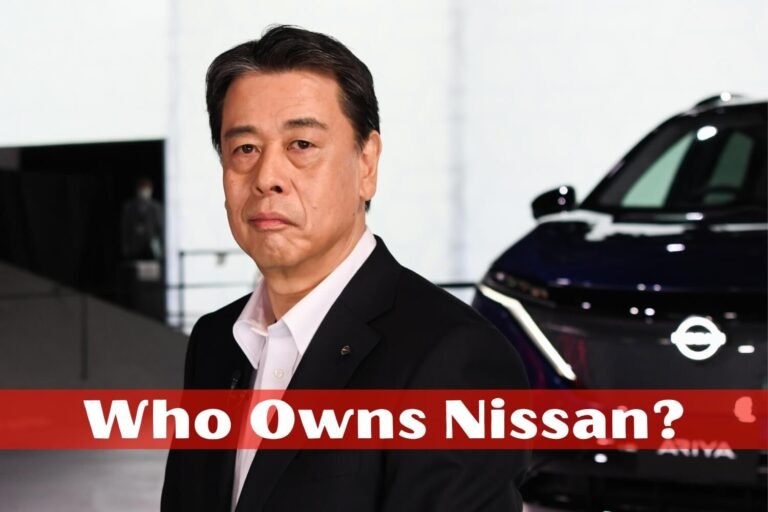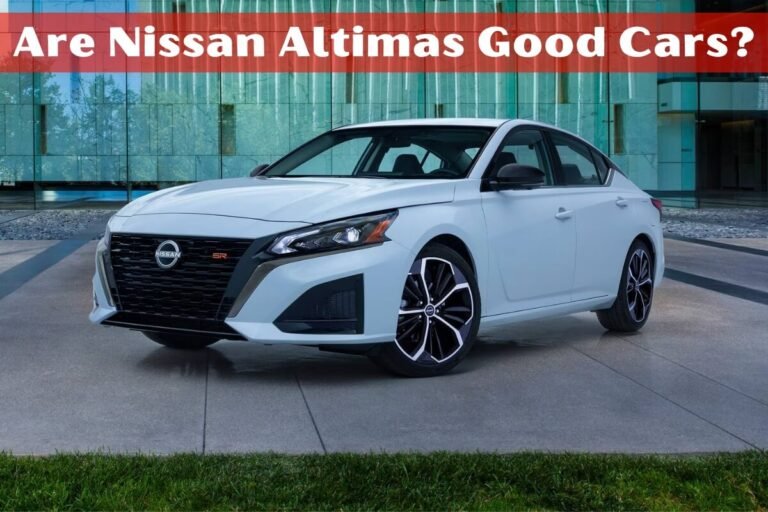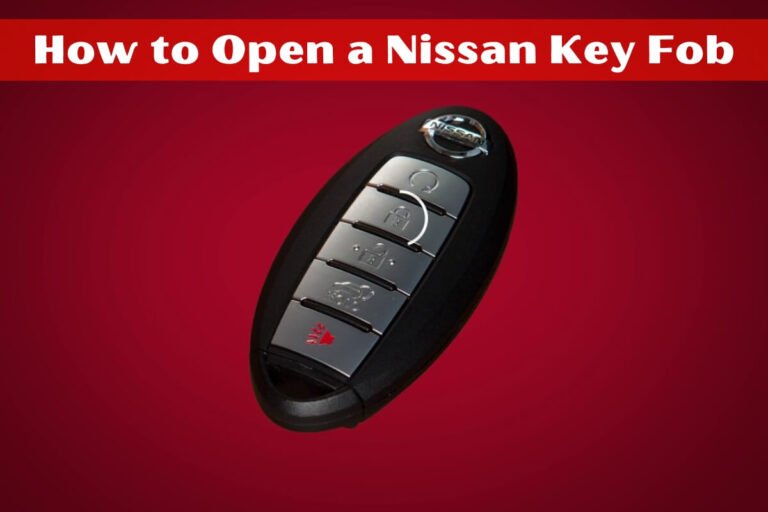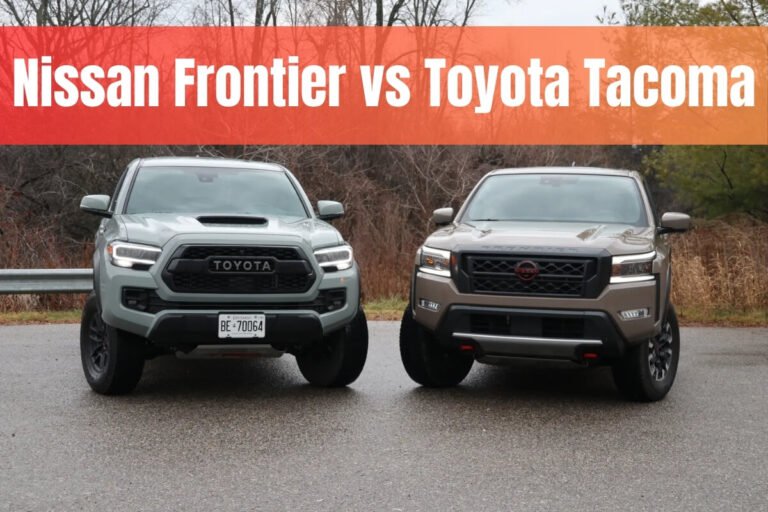Is Infiniti Nissan? Everything You Need to Know
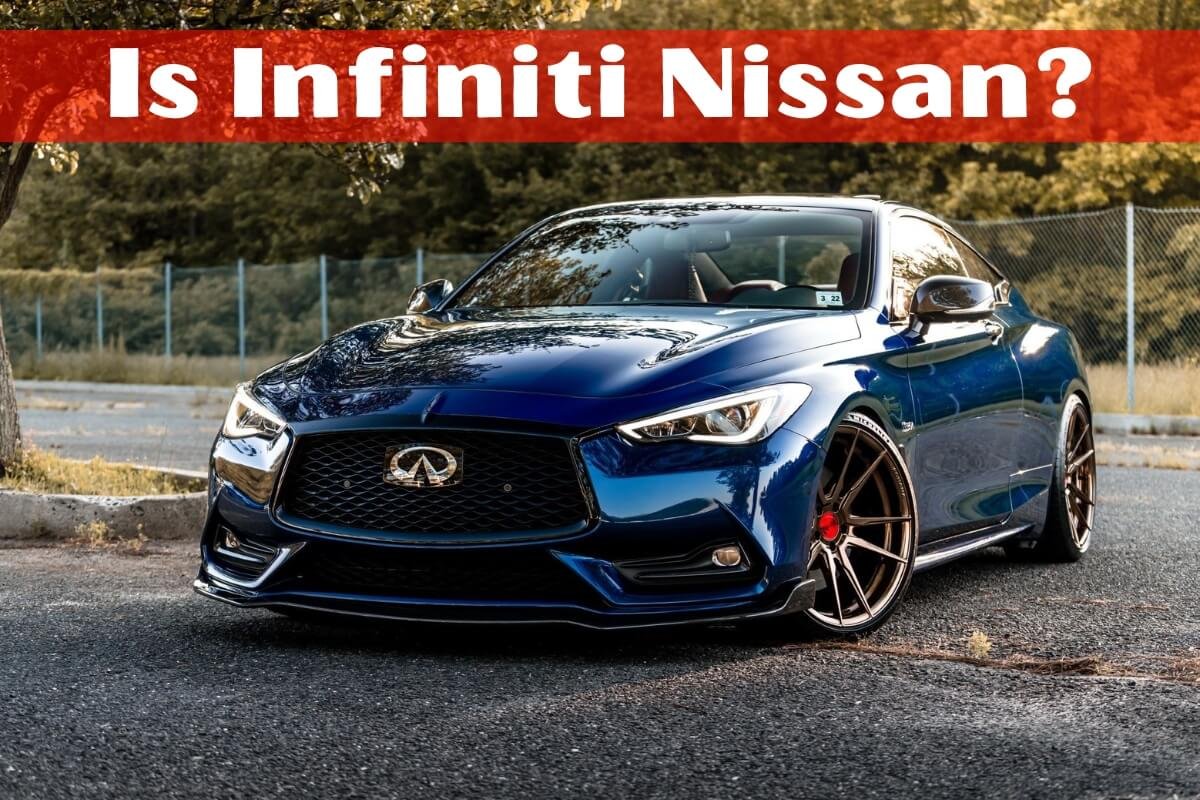
The world of luxury automobiles is a highly competitive space, with established players like Mercedes-Benz, BMW, and Lexus vying for dominance. In this realm, the Infiniti brand stands out as the premium division of the Japanese automaker Nissan. But is Infiniti Nissan? The answer is yes, Infiniti is owned by Nissan Motor Company.
However, there’s much more to the story than just ownership. In this comprehensive guide, we’ll dive deep into the fascinating history of Infiniti, explore the key differences between Nissan and Infiniti vehicles, and help you determine whether an Infiniti or a Nissan better suits your needs. We’ll also look at the brand’s future plans and how it aims to carve out a unique identity in the ever-evolving luxury car landscape.
What is Infiniti?
Infiniti is the luxury vehicle division of Nissan Motor Company, a Japanese multinational automotive manufacturer headquartered in Yokohama. Launched in 1989, Infiniti was created to target the premium vehicle segments, primarily in the United States market.
The brand’s name, Infiniti, is derived from the concept of infinite possibilities and horizons. This is reflected in the sleek logo design, which features two central lines stretching into the distance, symbolizing the brand’s commitment to innovation and pushing boundaries.
The History of Infiniti
Infiniti’s origins can be traced back to the late 1980s when Japanese automakers like Toyota and Honda were making inroads into the luxury car market with the launch of Lexus and Acura, respectively. Recognizing the growing demand for premium vehicles, especially in the United States, Nissan decided to create a separate luxury division to compete with these brands and the established European players.
In November 1989, Infiniti was officially launched with two models: the Q45 sedan and the M30 coupe. While the brand initially struggled to find its footing and establish a distinct identity, a shift towards performance-oriented vehicles in the early 2000s breathed new life into Infiniti.
The introduction of the highly acclaimed G35 sports sedan in 2003 marked a turning point for the brand. With its powerful engine, refined handling, and luxurious appointments, the G35 quickly gained recognition from automotive enthusiasts and critics alike, earning prestigious accolades like the Motor Trend Car of the Year award.
Is Infiniti Owned by Nissan?
Yes, Infiniti is a division and wholly-owned subsidiary of Nissan Motor Company. While Infiniti operates with a distinct brand identity and positioning in the luxury vehicle segment, the company’s ties to its parent company, Nissan, run deep.
Many Infiniti models share their underlying platforms and components with their Nissan counterparts, although they are heavily differentiated in terms of design, performance, and luxury appointments. This strategic approach allows Nissan to leverage its engineering expertise and economies of scale while providing Infiniti with a solid foundation to build upon.
Where Are Infiniti Vehicles Made?
Infiniti’s vehicle production is spread across multiple locations worldwide, reflecting the brand’s global presence and reach. Here’s a breakdown of where some of the most popular Infiniti models are manufactured:
Sedans:
- Infiniti Q50 and Q60: These sleek and sporty sedans and coupes are produced in Kaminokawa, Tochigi, Japan.
SUVs and Crossovers:
- Infiniti QX50 and QX55: These compact luxury crossovers are manufactured in Aguascalientes, Mexico.
- Infiniti QX60: Infiniti’s versatile three-row crossover is assembled in Smyrna, Tennessee, USA.
- Infiniti QX80: The brand’s flagship full-size SUV is produced in Yukuhashi, Japan.
While the production locations may vary, all Infiniti vehicles are built to exacting standards, ensuring consistent quality and performance across the lineup.
Differences Between Nissan and Infiniti Vehicles
Although Infiniti models share some underpinnings with their Nissan counterparts, there are significant differences that set the two brands apart. Here are some key distinctions:
- Positioning: Nissan vehicles are aimed at the mainstream market, offering practicality, affordability, and value-oriented transportation. In contrast, Infiniti targets the premium and luxury segments, focusing on refinement, performance, and upscale experiences.
- Design and Materials: Infiniti models feature more sophisticated and driver-focused designs, with upscale interior materials like leather, wood trim, and premium soft-touch surfaces. Nissan vehicles, while well-appointed, prioritize durability and cost-effectiveness in their material choices.
- Performance and Handling: Infiniti vehicles are tuned for a more engaging driving experience, with powerful engines, responsive handling, and advanced chassis technologies. Nissan models, while capable, are generally more focused on comfort and efficiency.
- Technology and Features: As a luxury brand, Infiniti often debuts the latest technological innovations and advanced safety features before they trickle down to Nissan’s mainstream lineup.
- Pricing and Ownership Costs: Infiniti vehicles command a premium price tag compared to their Nissan counterparts, reflecting their higher level of luxury, performance, and exclusivity. Ownership costs, including maintenance and repairs, are also generally higher for Infiniti models.
Model Lineup Comparison
To better understand the differences between Nissan and Infiniti vehicles, let’s compare some key models from each brand:
- Nissan Altima vs. Infiniti Q50: The Altima is Nissan’s midsize family sedan, known for its practicality and value. The Infiniti Q50, on the other hand, is a sport-oriented luxury sedan with a more powerful engine options, a more refined interior, and a focus on driving dynamics.
- Nissan Murano vs. Infiniti QX60: While the Nissan Murano is a well-equipped and practical midsize crossover, the Infiniti QX60 takes things to the next level with a more luxurious cabin, advanced safety features, and a smoother ride quality.
- Nissan Armada vs. Infiniti QX80: The Nissan Armada is a full-size SUV designed for rugged capability and family-friendly versatility. The Infiniti QX80, however, is a true luxury flagship, boasting a more refined interior, a powerful V8 engine, and a more comfortable ride quality, all wrapped in a sleek and upscale package.
While these examples highlight the general differences between the two brands, it’s important to note that even when Nissan and Infiniti models share platforms or components, they are differentiated to cater to their respective target audiences.
Should You Buy a Nissan or Infiniti?
The decision to purchase a Nissan or an Infiniti ultimately comes down to your specific needs, preferences, and budget. Here are some key considerations:
- If you prioritize luxury, refinement, and performance: Infiniti models may be the better choice. Their upscale interiors, powerful engines, and driver-focused dynamics cater to those seeking a more premium and engaging driving experience.
- If practicality and affordability are top priorities: Nissan vehicles often offer more value for money, with a focus on functionality, efficiency, and cost-effectiveness, making them a practical choice for daily transportation needs.
- If you’re considering alternatives: Other luxury brands like Acura, Genesis, and Lexus may also be worth considering, as they offer similar levels of refinement and performance at varying price points.
Ultimately, it’s essential to test drive both Nissan and Infiniti models that fit your needs and budget to get a firsthand feel for their differences and make an informed decision.
Pros and Cons of Owning an Infiniti
Like any vehicle, owning an Infiniti comes with its own set of pros and cons. Here’s a closer look:
Pros:
- Powerful and Refined Powertrains: Infiniti vehicles are known for their potent engine options, delivering a thrilling and refined driving experience.
- Driver-Focused Dynamics and Chassis Tuning: From responsive steering to well-controlled body motions, Infiniti models prioritize engaging driving dynamics.
- Upscale Cabins with High-End Materials: Infiniti interiors feature premium materials like leather, wood trim, and soft-touch surfaces, creating a luxurious and comfortable environment.
- Access to Latest Tech and Safety Features: As a luxury brand, Infiniti often debuts cutting-edge technologies and advanced safety systems before they trickle down to mainstream models.
Cons:
- Higher Prices: Infiniti vehicles generally carry a premium price tag compared to their mainstream Nissan counterparts, reflecting their luxury positioning.
- More Expensive Maintenance and Repair Costs: Due to the use of higher-end components and the more complex nature of luxury vehicles, maintaining and repairing an Infiniti can be costlier than a comparable Nissan model.
- Interior Space Trade-Off: While Infiniti cabins exude luxury, some models may feel more cramped or have less interior space compared to their Nissan counterparts, which often prioritize practicality and interior volume.
- Brand Perception: Although Infiniti has a strong reputation for performance and luxury, it may still lag behind some of the more established German and American luxury brands in terms of overall brand perception and resale value.
The Future of Infiniti
As the automotive industry continues to evolve, Infiniti is actively charting its course toward an electrified and sustainable future. Here are some key developments and plans for the brand:
- Electrification: Infiniti has announced its intention to electrify its entire lineup by the early 2030s, with a mix of fully electric vehicles (EVs) and hybrid models. This move aligns with the broader industry shift toward more eco-friendly and sustainable mobility solutions.
- Distinctive Design Language: To better differentiate itself from its Nissan roots and establish a stronger brand identity, Infiniti is exploring a more distinctive and cohesive design language across its future models.
- Potential Expansion into New Segments: While Infiniti currently focuses on sedans, coupes, and SUVs, the brand may explore new segments, such as electric performance vehicles or high-end luxury offerings, to capitalize on emerging market trends.
- Rebuilding Brand Image: With increased competition from established luxury brands and new players entering the market, Infiniti recognizes the need to strengthen its brand image and perception among consumers, particularly in key markets like the United States and China.
As Infiniti navigates these changes, the brand’s success will likely hinge on its ability to strike the right balance between innovation, performance, and luxury, while staying true to its core values and appealing to a discerning customer base.
Closing Thoughts
In conclusion, the answer to the question “Is Infiniti Nissan?” is a resounding yes. Infiniti is the luxury division and a wholly-owned subsidiary of Nissan Motor Company. While the brands share some underlying platforms and components, Infiniti distinguishes itself with a focus on performance, refinement, and upscale experiences.
From the sleek and sporty Q50 and Q60 sedans to the sophisticated QX60 crossover and the flagship QX80 SUV, Infiniti offers a compelling lineup of vehicles for those seeking a premium driving experience. However, with higher price tags and ownership costs, Infiniti may not be the ideal choice for those prioritizing practicality and affordability.
As the brand embarks on its electrification journey and explores new design directions, Infiniti faces the challenge of carving out a distinct identity in an increasingly competitive luxury vehicle landscape. Nonetheless, with its roots in performance and innovation, Infiniti is poised to continue pushing boundaries and offering discerning drivers a unique and rewarding automotive experience.


